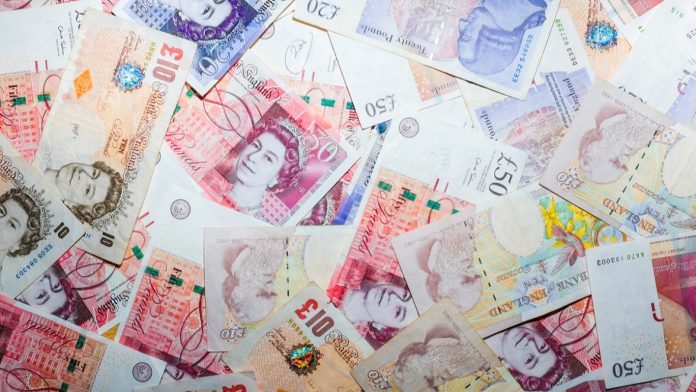The pound euro exchange rate closed on Monday at approximately the same level that it started. Both the pound and the euro were broadly out of favour, ending the session at €1.1003. The pound is moving higher in early trade on Tuesday.
| What do these figures mean? |
| When measuring the value of a pair of currencies, one set equals 1 unit and the other shows the current equivalent. As the market moves, the amount will vary from minute to minute.
For example, it could be written: 1 GBP = 1.13990 EUR Here, £1 is equivalent to approximately €1.14. This specifically measures the pound’s worth against the euro. If the euro amount increases in this pairing, it’s positive for the pound . Or, if you were looking at it the other way around: 1 EUR = 0.87271 GBP In this example, €1 is equivalent to approximately £0.87. This measures the euro’s worth versus the British pound. If the sterling number gets larger, it’s good news for the euro. |
Monday was a UK public holiday, but the pound was still moving. With no economic releases to digest, investors remained fixed on Brexit rhetoric. Over the weekend Donald Tusk European Council President had a less optimistic tone than German Angela Merkel and French President Macron who had both showed willingness to listen to new proposals regarding the Irish backstop.
Whilst the EU are still waiting for an alternative to the Irish backstop arrangement, attention is turning this morning to UK opposition leader Jeremy Corbyn. Mr Corbyn is preparing to hold cross party talks to look at ways to prevent a no deal Brexit.
With just 68 days to go until the UK is due to leave the EU, Brexit remains the single biggest driving force of the pound. This is because the way in which the UK leaves the EU, with or without a deal could have a huge impact on how the UK economy holds up.
| Why is a “soft” Brexit better for sterling than a “hard” Brexit? |
| A soft Brexit implies anything less than UK’s complete withdrawal from the EU. For example, it could mean the UK retains some form of membership to the European Union single market in exchange for some free movement of people, i.e. immigration. This is considered more positive than a “hard” Brexit, which is a full severance from the EU. The reason “soft” is considered more pound-friendly is because the economic impact would be lower. If there is less negative impact on the economy, foreign investors will continue to invest in the UK. As investment requires local currency, this increased demand for the pound then boosts its value. |
This holiday shortened week is a quiet week for UK economic data releases. No high impacting figures are due to be released. As a result, Brexit will be more in focus than ever.
Will Eurozone GDP Data Hit Euro Demand?
The mood towards the euro weakened on Monday weak data added to the mounting evidence of a slowing eurozone economy and the need for stimulus from the European Central Bank. The latest figures from Germany showed that business confidence slipped to the lowest level in seven years this month, as the exporter country remains caught up in the ongoing US — Sino trade war. This is another indication that Germany is heading for a recession.
Today investors will look towards the final reading for the second quarter GDP. Analysts are not expecting any changes, pencilling a -0.1% contraction quarter on quarter. A weaker reading could boost the case for the ECB to cut interest rates in September and see the euro fall further.
| Why do interest rate cuts drag on a currency’s value? |
| Interest rates are key to understanding exchange rate movements. Those who have large sums of money to invest want the highest return on their investments. Lower interest rate environments tend to offer lower yields. So, if the interest rate or at least the interest rate expectation of a country is relatively lower compared to another, then foreign investors look to pull their capital out and invest elsewhere. Large corporations and investors sell out of local currency to invest elsewhere. More local currency is available as the demand of that currency declines, dragging the value lower. |





